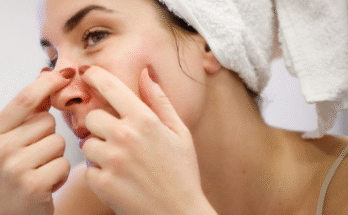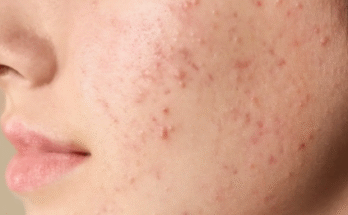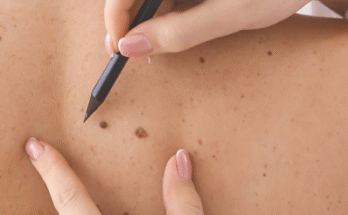Acne is something most teenagers experience at some point. Those small bumps, blackheads, or occasional pimples can show up right before school photos, big events, or just when you want to feel your best. It’s normal, it’s common, and it’s not something to be ashamed of. Still, learning how to care for your skin can make a big difference in how confident and comfortable you feel. The good news is that with simple, everyday habits, you can help your skin look and feel healthier.
Understanding What Causes Acne
Acne begins when tiny pores in your skin become clogged with oil, dead skin cells, or bacteria. During the teenage years, hormone levels change, causing the skin’s oil glands to become more active. This can make the skin oilier than usual and lead to clogged pores. Sometimes, acne runs in families—if your parents had it as teenagers, you might too. While you can’t always control your hormones or genetics, you can control your daily skincare routine and habits, which play a big role in managing breakouts.
Keep Your Face Clean, But Be Gentle
Washing your face is one of the simplest ways to care for acne-prone skin, but the key is to do it gently. Overwashing or scrubbing too hard can irritate your skin and actually make breakouts worse. Try washing your face twice a day—once in the morning and once at night—with a mild, fragrance-free cleanser designed for your skin type. If you play sports or sweat a lot during the day, washing your face afterward can also help prevent clogged pores. Always use lukewarm water and pat your face dry with a clean towel instead of rubbing it.
Choose the Right Skincare Products
When shopping for skincare products, look for labels that say “non-comedogenic” or “oil-free.” These are designed not to clog pores. Avoid using harsh soaps, alcohol-based toners, or very thick creams that can trap oil and dirt. Teenagers with oily skin may prefer a lightweight gel moisturizer, while those with dry or combination skin might do better with a light lotion. Sunscreen is also important, even for acne-prone skin. Use a sunscreen that is labeled as oil-free or suitable for sensitive skin to protect against sun damage without causing breakouts.
Don’t Pop or Pick at Pimples
It’s tempting to touch, squeeze, or pick at pimples, especially when they show up in noticeable places like your forehead or chin. However, picking can push bacteria deeper into the skin and lead to redness, swelling, or even scarring. If you get the urge to pop a pimple, try reminding yourself that it will likely heal faster and look better if left alone. You can use a gentle spot treatment instead, applying a small amount to the area once or twice a day.
Pay Attention to Hair and Hair Products
Hair can affect your skin more than you might realize. Oils and styling products like gels, sprays, or pomades can transfer to your forehead and cause breakouts, especially around the hairline. To help prevent this, wash your hair regularly and try to keep it away from your face as much as possible. If you use styling products, apply them away from your forehead and wash your hands afterward to keep residue off your skin.
Be Mindful of What Touches Your Face
Think about how often you touch your face during the day without realizing it—resting your chin on your hands, brushing your hair out of your eyes, or pressing your phone against your cheek. Each of these actions can transfer dirt, oil, or bacteria to your skin. Try to keep your hands clean and avoid touching your face unnecessarily. Cleaning your phone screen with a soft, disinfecting wipe can also help reduce the spread of bacteria that may contribute to acne.
Eat a Balanced Diet and Stay Hydrated
While food doesn’t directly cause acne, a balanced diet can support overall skin health. Try to include fruits, vegetables, lean proteins, and whole grains in your meals. Drinking enough water throughout the day helps your skin stay hydrated and can make it look fresher and more balanced. Limiting very sugary snacks or greasy fast food might also make a difference for some people, though everyone’s skin reacts differently. The key is to find what works best for you and maintain a healthy routine.
Manage Stress and Get Enough Sleep
Teenagers often juggle school, friends, activities, and responsibilities, which can make life stressful. Stress doesn’t directly cause acne, but it can make existing breakouts worse for some people. Finding ways to relax—whether it’s through listening to music, reading, going for a walk, or practicing deep breathing—can help keep stress levels down. Sleep also plays an important role in how your body repairs itself, including your skin. Try to get around eight hours of sleep each night to give your body the rest it needs.
Be Patient and Consistent
It’s important to remember that skin improvements take time. Even when you’re doing everything right, breakouts won’t disappear overnight. Most acne treatments or routines take several weeks to show noticeable results. The key is to stay consistent and avoid switching products too often. If something doesn’t seem to be working after a couple of months, you can consider trying a different product that’s suitable for your skin type or speak with a dermatologist for personalized advice.
Know When to Ask for Help
Sometimes, acne can be stubborn and hard to manage on your own. If breakouts are painful, cause scarring, or affect your confidence, it may be a good idea to talk to a skincare professional or dermatologist. They can recommend products or treatments that fit your skin’s specific needs. Getting professional guidance is nothing to be embarrassed about—it’s simply another way of taking good care of yourself.
Embracing Your Skin with Confidence
Every teenager experiences skin changes, and acne is just one part of growing up. It doesn’t define who you are or how beautiful you can feel. Clear skin takes time, patience, and self-care, but confidence grows from within. By developing healthy habits and treating your skin kindly, you’ll not only support its health but also build a routine that helps you feel your best each day. Remember, everyone’s skin is unique, and progress looks different for each person. What matters most is being gentle with yourself along the way.


